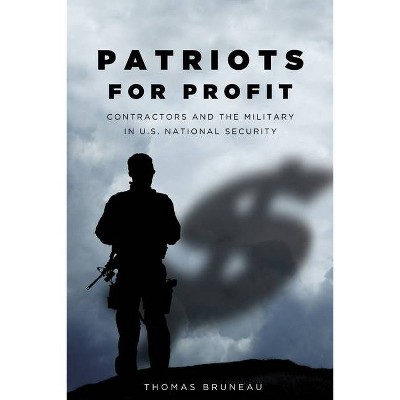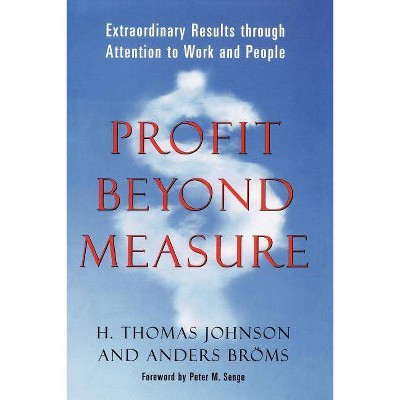Patriots for Profit - (Stanford Security Studies) by Thomas Bruneau (Paperback)

Similar Products
Products of same category from the store
AllProduct info
<p/><br></br><p><b> About the Book </b></p></br></br>The book analyzes U.S. national security and defense policy utilizing a new approach to civil-military relations, and includes both the uniformed military and the private security contractors.<p/><br></br><p><b> Book Synopsis </b></p></br></br>The book analyzes U.S. national security and defense policy utilizing a new approach to civil-military relations, and includes both the uniformed military and the private security contractors.<p/><br></br><p><b> Review Quotes </b></p></br></br><br>[B]runeau (Naval Postgraduate School) highlights the difficulty in providing effective management and anything but light or even marginal oversight. This relatively short work does a skillful job of looking at this phenomenon through the lens of the existing literature on civil-military relations, as well as the author's own investigations, concluding that a variety of forces and processes have led to 'the confusion, ineffectiveness, and inefficiency of private security contracting as it is today.'--C. G. Wood "<i>Choice</i>"<br><br>Bruneau persuasively makes two points that must be addressed if we are to avoid strategic paralysis: we need to formulate doctrine for how we use personal security contractors, and their employment must be carefully integrated into military planning, as well as budgeting, processes . . . In sum, <i>Patriots for Profit</i> is by no means an easy read for military commanders and their staffs. Nevertheless, Bruneau's observations are critical to national security.--Lieutenant Colonel Brian Hanley "<i>Proceedings Magazine</i>"<br><br>This impressive volume is theoretically coherent and empirically rich, with insights into wider issues of defense policy-making and governance in the contemporary-era.--Tim Edmonds<br><br>This is a compelling and important book which is at once rooted deeply in the study of civil-military relations yet persuasively challenges many of its presumptions and precepts. It offers a penetrating examination of the challenges and dilemmas that private military contractors pose for traditional notions of civil-military relations, while placing this issue in a much broader perspective that offers wisdom and insight on defense reform, inter-service rivalries and the continuing impact of Goldwater-Nichols. This is likely to become a contemporary classic in the literature on civil-military relations.--Phil Williams, Posvar Professor of International Security and Director of the Ridgway Center for International Security Studies<br><p/><br></br><p><b> About the Author </b></p></br></br>Thomas C. Bruneau is Distinguished Professor of National Security Affairs at the Naval Postgraduate School in Monterey, California, where he was chairman of the department from1989 to 1995. He is co-editor of <i>Who Guards the Guardians and How: Democratic Civil-Military Relations</i>.
Price History
Price Archive shows prices from various stores, lets you see history and find the cheapest. There is no actual sale on the website. For all support, inquiry and suggestion messages communication@pricearchive.us




















